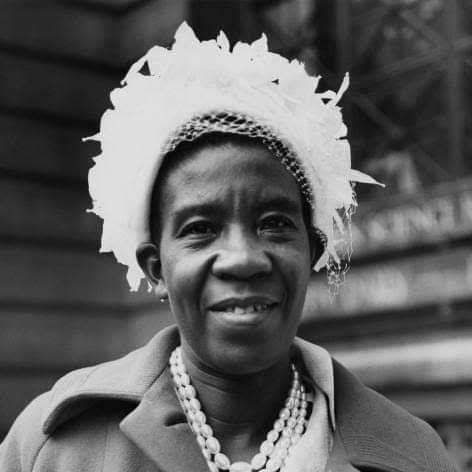Princess Nakatindi Wina was a prominent Zambian politician and freedom fighter, known for her dedication to social justice, women’s rights, and her royal lineage. As a member of the Barotseland royal family, she made significant contributions to Zambian politics and society. Here are 20 things you should know about this influential figure:
- Royal Heritage: Born on February 15, 1945, as Mukwae Nakatindi, she was the granddaughter of King Yeta III of the Lozi people and a member of the Barotseland royal family.
- Family Background: Nakatindi was the daughter of Nakatindi Yeta Nganga and Induna Yuyi Nganda, growing up in a large family as one of 11 children.
- Education: Nakatindi received a solid education, which laid the foundation for her future endeavors in politics and social activism.
- Introduction to Politics: With the introduction of multi-party politics in Zambia in the early 1990s, she became active in the political arena, joining the Movement for Multi-Party Democracy (MMD).
- Ministerial Roles: In 1992, she was appointed Minister of State for Tourism, making her one of the few women in high-ranking political positions at the time.
- Community Development Focus: From 1993 to 1994, she served as Minister for Community Development and Social Welfare, where she advocated for social reforms and community empowerment.
- Gender Equality Advocate: Throughout her career, Nakatindi championed women’s rights and gender equality, urging for greater representation of women in politics and decision-making bodies.
- Controversial Scandals: During her political career, she was linked to drug importation scandals that plagued MMD politicians in the early 1990s. Despite media scrutiny, President Frederick Chiluba defended her, attributing the controversy to media exaggeration.
- Imprisonment: In 1998, she was imprisoned in Mukobeko prison after being linked to the 1997 coup d’état attempt. Her husband, Induna Sikota Wina, supported her during this difficult time.
- Call for Boycotts: In 2000, Nakatindi called on women to boycott the African Union due to its lack of gender equality in representation, highlighting the need for meaningful participation of women in leadership.
- Humanitarian Efforts: As a politician, she actively supported various social initiatives aimed at improving the lives of vulnerable populations in Zambia.
- Political Legacy: Nakatindi’s commitment to social justice and women’s rights has left a lasting impact on Zambian politics, inspiring future generations of female leaders.
- Health Struggles: In 2012, Nakatindi was diagnosed with a heart condition, which eventually required her to seek treatment in Johannesburg, South Africa.
- Passing: Tragically, she passed away on April 5, 2012, following surgery for her heart condition. Her death marked the end of a significant chapter in Zambian politics.
- Recognition and Tribute: After her passing, many recognized her contributions to Zambian society, with tributes honoring her legacy as a freedom fighter and advocate for women’s rights.
- Influence on Women’s Rights: Nakatindi’s advocacy for gender equality laid the groundwork for future policies aimed at promoting women’s rights in Zambia.
- Family Legacy: Nakatindi was married to Sikota Wina, a prominent Zambian politician, and they had 11 children together, contributing to a strong family legacy in Zambian politics.
- Cultural Significance: As a member of the royal family, her involvement in politics reflected the intersection of tradition and modernity in Zambian society.
- Community Engagement: Nakatindi actively engaged with her community, promoting social justice initiatives and encouraging civic participation among her constituents.
- Enduring Influence: Despite her passing, Nakatindi Wina’s influence endures through her contributions to Zambian politics and her role as a pioneer for women’s rights and empowerment in the country.
Princess Nakatindi Wina’s life and career were marked by resilience and a commitment to fighting for the rights of her people. Her legacy continues to inspire those striving for justice and equality in Zambia and beyond.






